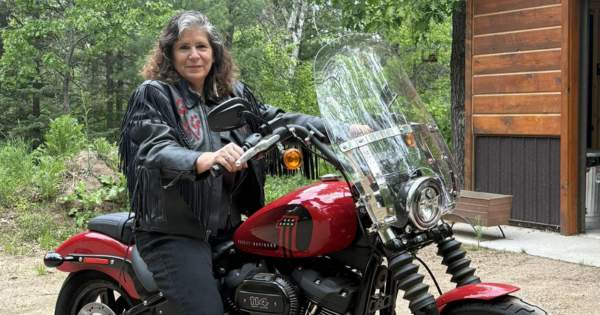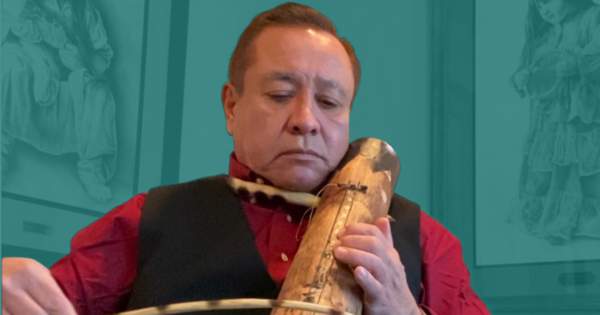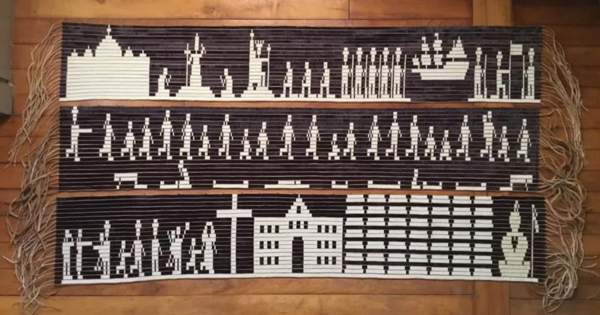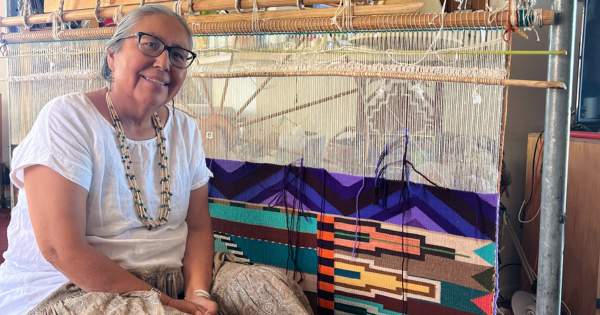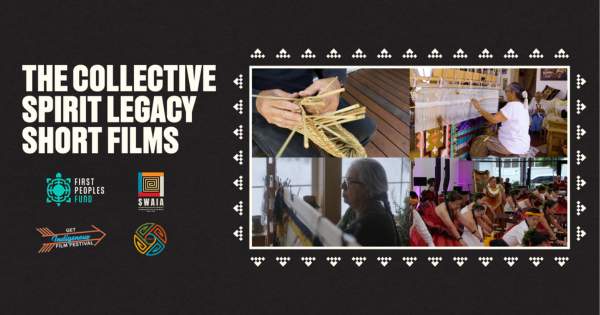
Dances With Words Strives for Inclusivity
Writing is healing. Speaking is healing.
Together, they create spoken words. That is what Dances With Words (DWW), a program funded by First Peoples Fund, accomplishes among Lakota youth by empowering them to look within and channel their creative spirits.
During the Lakota Nation Invitational Poetry Slam in December, Kinsale Drake, a Diné poet, editor and playwright from Navajo Mountain, Utah, encouraged Lakota youth about the importance of being themselves and to look for healthy coping mechanisms like poetry to express themselves. After all, oral history is embedded in the Indigenous cultures of the Dakotas, as is storytelling and music.
As a mentor for DWW, Drake has taught the meaning of prose and activism with her poetry. She is a 2020 First Peoples Fund Cultural Capital Fellow and was recently selected as the winner of the 2022 Joy Harjo Poetry Prize in the annual Cutthroat Contest. She is also an alumnus of Yale University and has created spaces, like NDN Girls Book Club, for Indigenous women and girls to write and find community in art.
“Many of our first love languages were stories, told to us by older generations. Poetry is an intricate and emotional vehicle for that storytelling; it helps us to make those stories our own but also inherently makes them selfless,” Drake told First Peoples Fund. “They are almost always doing good, or expanding some kind of relationship between an audience and a poet, between friends, between instructor/learner.”
”This type of reciprocity is visible, and sometimes forgotten, across Indigenous cultures, and funding to create programs like DWW is vital for Native youth because poetry is a source of healing and empowerment, “ Drake said.
Established in 2014, DWW is a play on the 1990 movie titled, Dances With Wolves, which is famous for casting Indigenous actors. DWW pokes fun at the film and has its own spin on it. With a focus on youth engagement and individual sovereignty through a writing community, DWW encourages youth to express themselves freely.
Some write and speak about environmental activism or the ongoing Missing and Murdered Indigenous Peoples epidemic in their spoken words. Others explore substance abuse, suicide ideation, or the rampant alcoholism in their communities and how that is partly attributed to the historical impacts of colonization and generational trauma. In the end, healing is the center of these words no matter the subject.
According to Pte San Win Little Whiteman (Oglala Lakota), who was among the first cohort of DWW poets and now serves as FPF youth development program coordinator, DWW is youth-led on purpose.
“Our space is not just a place for our youth to connect with each other, but also to connect with themselves and their creative abilities and what they’re able to create and bring to the world,” Little Whiteman said.
They added that DWW strives to include various Indigenous cultures, including Lakota world views presented in its programming. DWW also offers a space for youth to talk about their lives, such as what they’re experiencing in their development as young teenagers.
“We have the highest teen suicide out of all the races. And that’s awful,” Little Whiteman said. “I just don’t want our youth to fall into that pit of just ‘Nothing’s going to be better.’” For Little Whiteman, and others, poetry has changed their lives for the better.
DWW, in some ways, is a healthy coping mechanism, says Augusta Rattling Hawk, DWW’s program manager for youth development. This year’s Poetry Slam, Rattling Hawk said, featured six participants, who also received training from the Cornerstone Theatre Company.
“Writing has such an intimate connection with just feeling and living and expressing one's emotions that a lot of times we see youth using this as an outlet to express themselves or feel better or bring about attention to problems that their communities face, or contribute to overall movements and causes like environmental activism poems,” Rattling Hawk said.

